10 Best Digital Marketing Tools for Leads, Conversions, and Loyalty

Table of Contents
- Is Digital Marketing Necessary?
- The 10 Best Digital Marketing Tools
- Key Takeaways
- Conclusion
- FAQs
With digital marketing techniques, marketers can reach larger audiences than ever before. The icing on the cake is that this is cost-effective, scalable, and measurable. Online communication becomes easier and more powerful with the best digital marketing tools. Feedback is also easy to gather and analyze. In this way, small businesses can make an impact to accelerate growth, and large businesses can consolidate and build on their gains.
Is digital marketing right for you? What are the best digital marketing tools? Read on to find out.

Is Digital Marketing Necessary?
A key marketing principle is to reach out to where your customers are. Nowadays, the majority of your customers are online. If they are interested in your brand or your competitor, they will search for it online. They will read reviews, they will ask questions on social media, and they will visit websites.
According to Statista, over two billion people purchased goods or services online in 2020. During the same year, e-retail sales surpassed USD 4.2 trillion worldwide. During the pandemic, global retail e-commerce sales grew more than 25 percent.
Whether B2C or B2B, every business can profit with digital marketing. That’s why HubSpot reports that 64% of marketers actively invest time in SEO. The lesson is clear. All businesses today need digital marketing. Apart from its tremendous reach, some other advantages are,
- It’s more cost-effective than traditional mainstream advertising.
- It delivers data to monitor campaign effectiveness.
- It can educate, inspire and create loyal consumers,
- It allows you to create personalized communication for precise targeting.
Let’s move on to the essential digital marketing tools list to enable you to achieve the above.
The 10 Best Digital Marketing Tools
There are many digital marketing techniques. Their effective use depends on the nature of the business and its growth objectives. Marketers use a mix of lead generation, conversion, SEO, e-mail marketing, and social media.
Here, you’ll find the ten best digital marketing tools. You can watch your online marketing efforts take off by using a suitable combination.
1. Optinmonster
Without leads, businesses will lose the opportunity to convert prospects into customers. Optinmonster is one of the top digital marketing tools to grow your email list, get more leads, and move them up the sales funnel. You can start with customizable templates, which can be used along with a drag-and-drop builder. This will also enable personalization.
Combine this with their targeting and segmentation engine, and you can display your offer to the right people at the right time. Testing is, of course, important to maximize results. You’ll get all the data you need to do this. Insights and analytics allow you to run A/B tests to increase conversions. Other features include multiple form types and buttons to customize user actions and track engagement.
2. Unbounce
Artificial intelligence can be a valuable partner for digital marketing. Unbounce is an essential digital marketing tool for landing page layouts designed for more conversions. Unbounce uses machine learning that helps transform ideas into campaigns that work.
Mobile-optimized campaigns are also a necessity nowadays. Unbounce can create these by using industry benchmarks and company goals as a guide. Copy can be generated instantly, based on your inputs. Writing, re-purposing, and expanding content can be done without delay. After that, your visitors can be automatically directed to best-fit pages to lift conversion rates.
3. Hotjar
For effective conversions, marketers need to understand the behavior of visitors on their site. They should be able to find out how consumers feel. Hotjar promises to help you discover this. It has an intuitive, visual platform with heatmaps. These represent the spots where users click, move, and scroll on your site. You find out the elements consumers are drawn to and which ones they ignore.
This analysis not only removes guesswork but also can reveal issues that may not have been spotted. There can be separate heatmaps for every page or one consolidated heatmap for the entire site. A date range can also be set to compare user behavior from one period to the next.
4. Ahrefs
Now, let’s turn to SEO, which is essential for consumers to find you online. Quality SEO boosts organic traffic, increases the click-through rate, and enhances website authority. Ahrefs has a comprehensive SEO toolbox that’s easy to implement and is invaluable for all SEO levels, from beginner to expert.
With Ahrefs, you can first optimize your website with a site audit. You can then explore what your consumers are searching for. You can analyze the competition and get tips based on your sector’s top-performing content. A rank tracker will track your progress to make course corrections and rise higher. It includes tutorials, “how-to” guides, and an active, helpful community.
5. SEMRush
SEMRush is another SEO tool that lets you quickly grow your online audience. It allows you to uncover millions of national and local keywords with ease. You can also analyze a domain’s backlink profile, run technical SEO audits and constantly track your SERP positions. This provides you with actionable insights that help you stay ahead of the curve.
An important use of SEMRush is to track competitive activity. It lets you keep an eye on your competition, so your content can rise above it. For example, you can find the mobile-desktop traffic share of any company, locate traffic sources, and understand facets of user online behavior. With this, you can benchmark your performance and discover new growth opportunities.
6. Mailchimp
Every savvy marketer knows that e-mail marketing is critical. It generates higher ROI than other methods of communication. Its reach and personalization can drive conversions like nothing else. Mailchimp is one tool that allows you to engage future customers, especially for small and medium enterprises. You can schedule campaigns, A/B test copy, and analyze important metrics such as open rates, click-through rates, and unsubscribe rates.
Mailchimp has easy-to-use design tools and flexible templates. You can use automated messages to reach the right people at the right time. With data and insights to discover what’s working and what isn’t. Mailchimp can also easily integrate with other software platforms to make all your marketing efforts seamless.
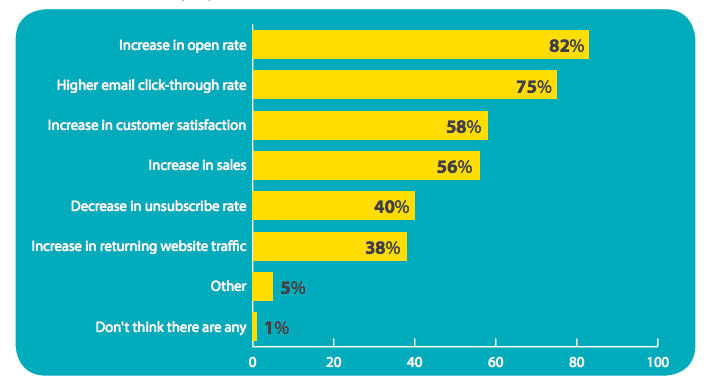
7. Moosend
Moosend is a beneficial tool for those just beginning their e-mail marketing journey. They claim to put you on the fastest path from email marketing to business growth. The main features include a drag-and-drop e-mail editor, A/B testing, data analytics, and list segmentation.
Moosend also has advanced automation features that save you the bother of laborious manual designing and checking. A form editor also lets you grow your mailing list, collect data effortlessly and share your forms across all online channels. There’s no need to learn coding: you can use automation workflows without raising a finger. In addition, Moosend has CRM tools that let you leverage your email to create hard-hitting campaigns. Live customer support and helpful video tutorials complete the picture.
8. Sendible
LinkedIn, Twitter, Facebook, Instagram, and other social media platforms can be a cost-effective way of boosting awareness, engagement, and loyalty. According to Smart Insights, 57.6% of the world’s population uses social media. The average daily usage is 2 hours and 27 minutes.
Sendible is a social media tool for marketers that provides post scheduling, approval workflows, and reporting. It allows you to integrate popular social media networks and conveniently manage multiple pages and profiles. You can also preview posts with a built-in editor for images. The results across social media can be collated and displayed jointly. This can throw up analytics and insights into the ones that performed the best. Content suggestions, recommended hashtags, and a content library make Sendible even more useful.
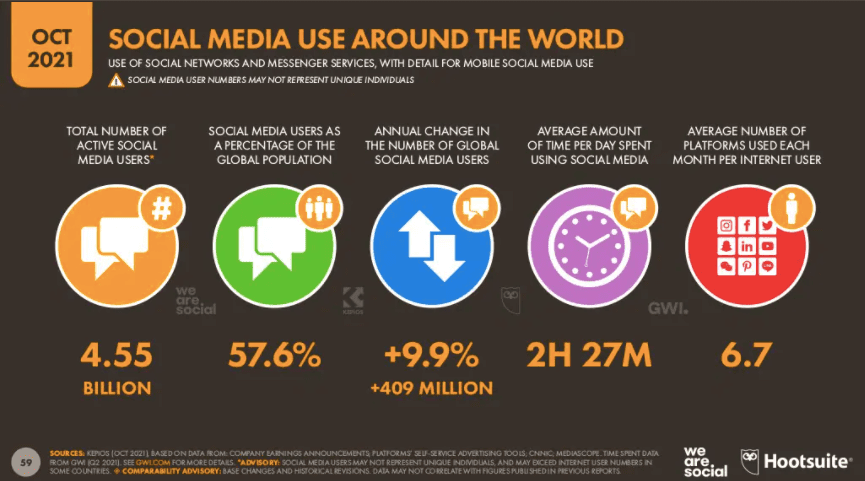
9. Canva
Whether it’s on your webpage, e-mail campaign, social media posts, or elsewhere, sound design and eye-catching images will help you stand out from the rest. According to Venngage, 40% of marketers predicted that up to 80% of businesses would heavily rely on visual content in 2021. The same holds for 2022 and beyond.
This is where Canva comes in. It’s a brand tool that makes it simple to create professional designs. Handy templates bring ideas to life, and tools encourage team collaboration. Animation, video, and audio services are also available. You also get access to a bank of premium images, video graphics, and audio clips. Once designs are ready, you can reach your audience with social campaigns supported by content scheduling.
10. Venngage
There are times when content demands infographics. They are visually attractive and easy to understand. They are also helpful when you need to communicate information quickly or when you want data to make a dramatic impression. Venngage is a tool that provides you with customizable, pre-designed infographic templates. It has easy-to-use features to help you visualize any type of information. You can develop timelines for projects, create onboarding diagrams, and outline survey findings, for example. To achieve this, you can use professionally-designed icons and illustrations. You can use your logo, fonts, and colors for brand consistency across all infographics.
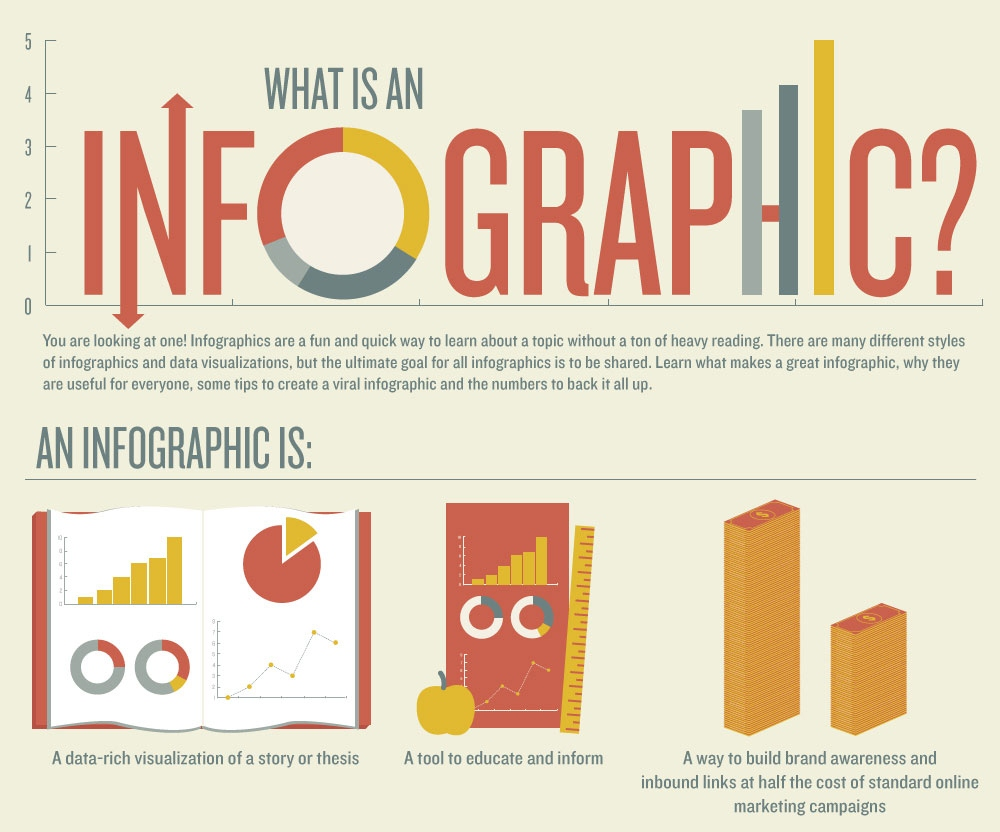
Key Takeaways
Now that we’ve outlined the main reasons why businesses need digital marketing and the best tools to do this, let’s summarise the key points.
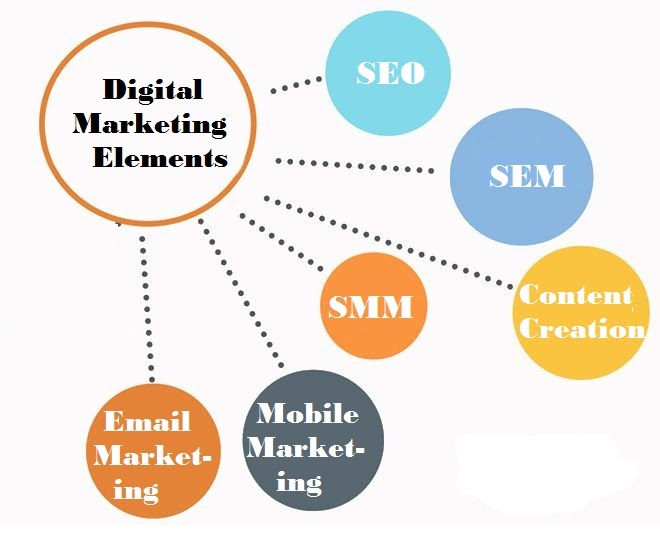
- Digital marketing works: Digital marketing is a cost-effective way to reach customers online. Small businesses can level the playing field, and medium to large ones consolidate gains. Digital marketing works by generating leads and conversions. A significant advantage is that it delivers data to monitor campaign effectiveness. Communication can be streamlined, segmented, and personalized.
- Elements of digital marketing: Online marketers use many techniques for digital marketing campaigns. It all depends on the type of business, size, and objectives. The right combination of top digital tools can create a winning plan.
- Digital tools for lead generation: With Optinmonster, you can grow your email list to get leads for conversion. Unbounce allows you to use machine learning to transform ideas into effective campaigns. You can use industry benchmarks and company goals for mobile-optimized campaigns. Traffic analysis and built-in testing mechanisms give you powerful insights into effectiveness.
- A digital tool for conversions: With Hotjar, you can discover your website visitors’ behavior. The visual platform uses heatmaps that represent where they click, move, and scroll. This lets you tweak sites for the best results. You can set a date range to track changes in user behavior, enhance user experience, and meet conversion goals.
- Digital tools for SEO: SEO is critical for consumers to find you online. It boosts organic traffic, increases the click-through rate, and enhances authority. Ahrefs is one of the essential digital marketing tools because it has a toolbox for all levels, from beginner to expert. You can track competition, explore what consumers need, and analyze content.
SEMRush lets you uncover several national and local keywords. You can analyze backlink profiles, run SEO audits and track SERP positions. SEMRush is also helpful to track your competition and calibrate your content. You can locate traffic sources and understand facets of user online behavior.
Conclusion
Every marketer nowadays needs to use digital campaigns to achieve business goals. These best digital marketing tools will help you with the key elements, such as SEO, e-mail marketing, and generating leads. Get ready for engagement and conversions.
FAQs
The best digital marketing tools let you achieve the objectives of your online campaigns. Most often, these are lead generation, conversions, and engagement. The top digital marketing tools simplify creating plans and content for e-mail marketing, leveraging social media, and creating attractive landing pages.
This depends on the marketing objective. For example, Optinmonster lets you grow your email list to get leads for conversion. Ahrefs is a powerful tool for SEO. And Sendible enables you to harness the power of social media for engagement and brand loyalty.
Many in the above list of digital marketing tools have a free tier. You can use these for a certain period to see the difference it makes to marketing results. After that, there are different levels of usage. You can pay a monthly or annual fee, depending on the nature of your needs.
1. SEO
2. PPC
3. Social Media Marketing
4. Content Marketing
5. Email Marketing
6. Mobile Marketing
7. Marketing Analytics
Depending on your business plan, you can use the online marketing tools above to achieve these objectives.
Digital creative tools are those that let you come up with new ways to display your ideas and content. Some examples are Canva, for online graphics, and Venngage, for infographics.
As explained above, digital marketing tools let you reach and engage consumers online. For example, with SEMRush, you can uncover keywords to enhance SEO. With Hotjar, you can discover the behavior of site visitors. And with Sendible, you can create powerful posts across social media platforms.
Latest Blogs
Learn how to rank on AI search engines like ChatGPT, Perplexity, and Gemini by optimizing your content for authority, structure, and relevance. Stay ahead in AI-driven search with this strategic guide.
Explore the best healthcare SEO services for your medical practice. Improve online visibility and effectively reach more patients in need of your services.
Discover top social media agencies specializing in banking solutions, enhancing financial services and driving engagement.
Get your hands on the latest news!
Similar Posts
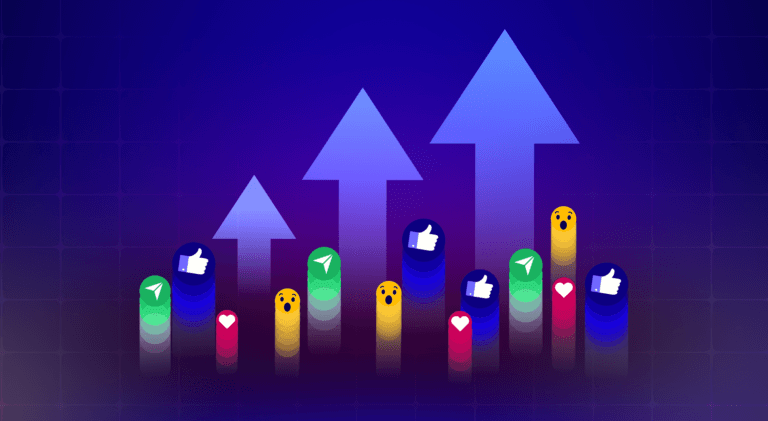
Artificial Intelligence
6 mins read
The Role of AI in Digital Marketing: AI Article Generators Transforming Content Creation

Artificial Intelligence
4 mins read
How AI Content Creator Is Shaping the Future of Digital Content

Digital Marketing
3 mins read